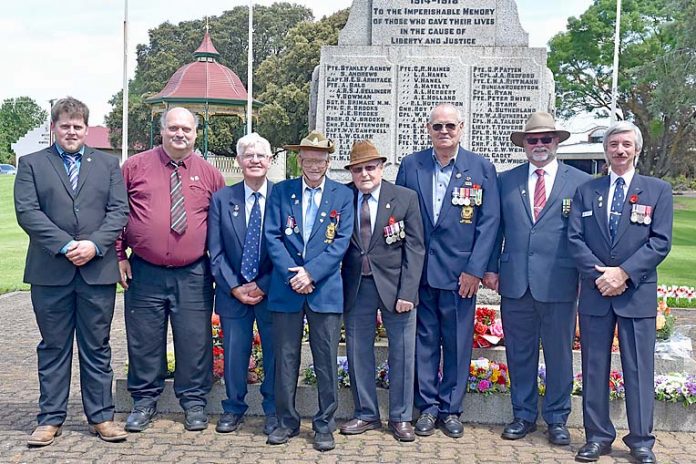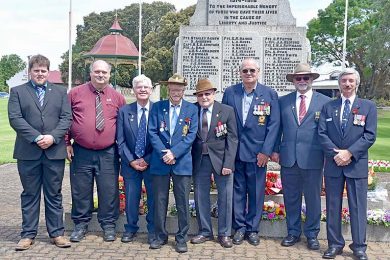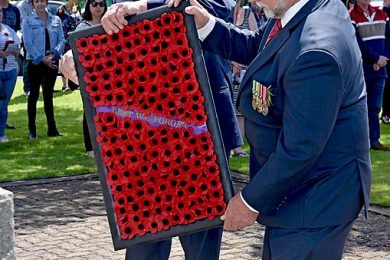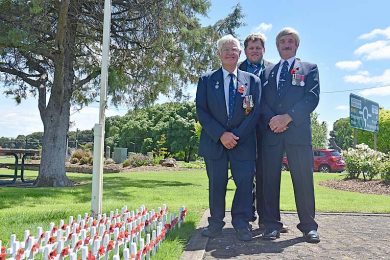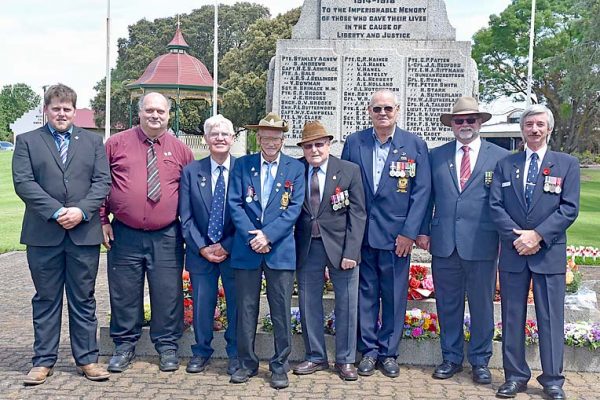
WATTLE Range residents paused on Sunday – at the eleventh hour of the eleventh day of the eleventh month – to commemorate the guns falling silent to end World War I a century ago.
Millicent RSL president Chris Mathias addressed a crowd of over 100 people who gathered in Millicent at the Cross of Sacrifice on a clear and calm spring morning.
“November 11, 1918, France and Belgium, 11am,” he said.
“100 years ago today, the Great War ended.
“For the first time in four years, the guns are silent.
“A quiet calm pervades the trenches and no-man’s land of the Western Front.
“Birdsong can be heard again among the scarce surviving trees.
“Soldiers stand around quietly sipping on cups of tea, contemplating the new reality.
“For them, the armistice means rest, a break from the stress of surviving from day to day, a time to allow their hearing to return to normal after the unending crescendo of cannon fire.
“From continuous fighting for months on end to surreal peacefulness, stunning, confusing, unnerving.
“Now is a time for contemplation, remembering mates lost in the maelstrom of battle, suddenly having to come to terns with the trauma, the horror they have experienced, the broken bodies, the shattered minds.
“Elation at the end of it all, but uncertainty for the future.”
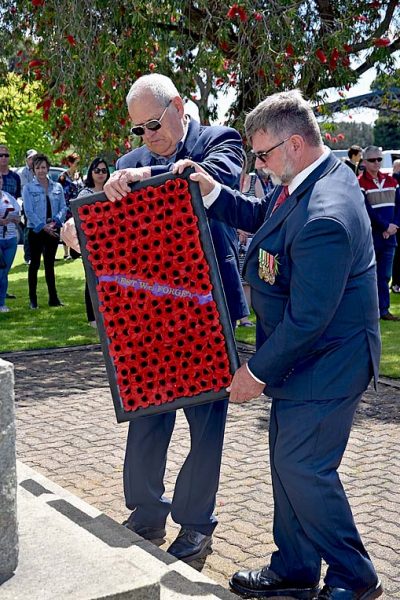
Mr Mathias added there was little excitement on the frontline because the end of the war was too great to appreciate immediately and it would take days before the enormity of it sunk in.
“Some 60,000 Australians were no longer around to see it, would not be going home to families and friends,” he said.
“In homes across our country, mothers and fathers, wives and girlfriends, sons and daughters faced the fact their loved ones were not coming home.
“Those that did return were changed irreversibly by their experiences and not for the better in many cases.
“So many of them came back to a society that did not understand, could not know what they had been through.
“If the names on this memorial could speak, what tales they would tell.
“Their stories are now part of our history.
“We must preserve them, let us never forget.”
Chaplain Paul Hales read the Anzac requiem, as well as the benediction.
Meanwhile, South East Family History Group committee member Colleen Hammat addressed the crowd and spoke of the 50 community members who served and died in our name during the war, as well as their ages and employment.
Among those were farmers, forest workers, labourers, teachers, builders, mechanics and dentists – everyday, working class men who made the ultimate sacrifice for our country and its future.
Three died during the Gallipoli campaign, two as result of the Light Horse campaigns in the Middle East and four were struck with illness contracted during their service, however the majority lost their lives fighting on the battlefields of the Western Front.
The youngest life taken was that of Ronald Wright, who was 16 years old when he was killed on a battle cruiser in the North Sea.
“Perhaps everyone here can now look at the names on the cross and understand a little more about the immense grief and loss that occurred locally 100 years ago as a result of the First World War,” Ms Hammat said.
“The lives and deaths of the 50 men I mentioned are detailed in the book and we hope that in recording this information these names on the cross of sacrifice will have enduring meaning for generations to come.”
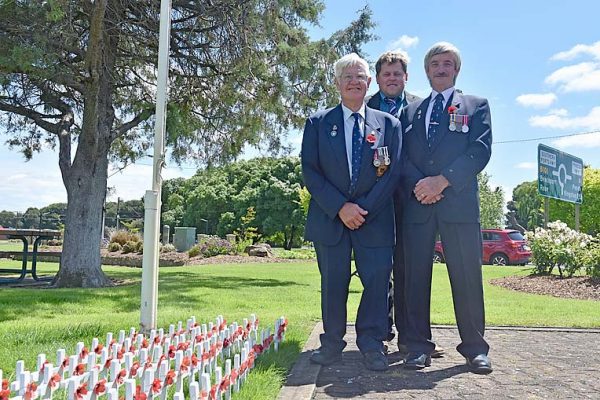
The ode was read before the bugle sounded The Last Post and an emotional silence swept the town as community members, young and old, reflected on the sacrifices made in our nation’s name.
Following the minute silence, the bugle sounded the Rouse and individuals, families, volunteers and representatives of service clubs, kindergartens and schools were invited to come forward and place wreaths or tributes in honour of the fallen.
“While this milestone in our history now passes, I ask that you continue to respect the memory of our heroic dead and come together again on Anzac Day next year to commemorate their service,” Mr Mathias said.

